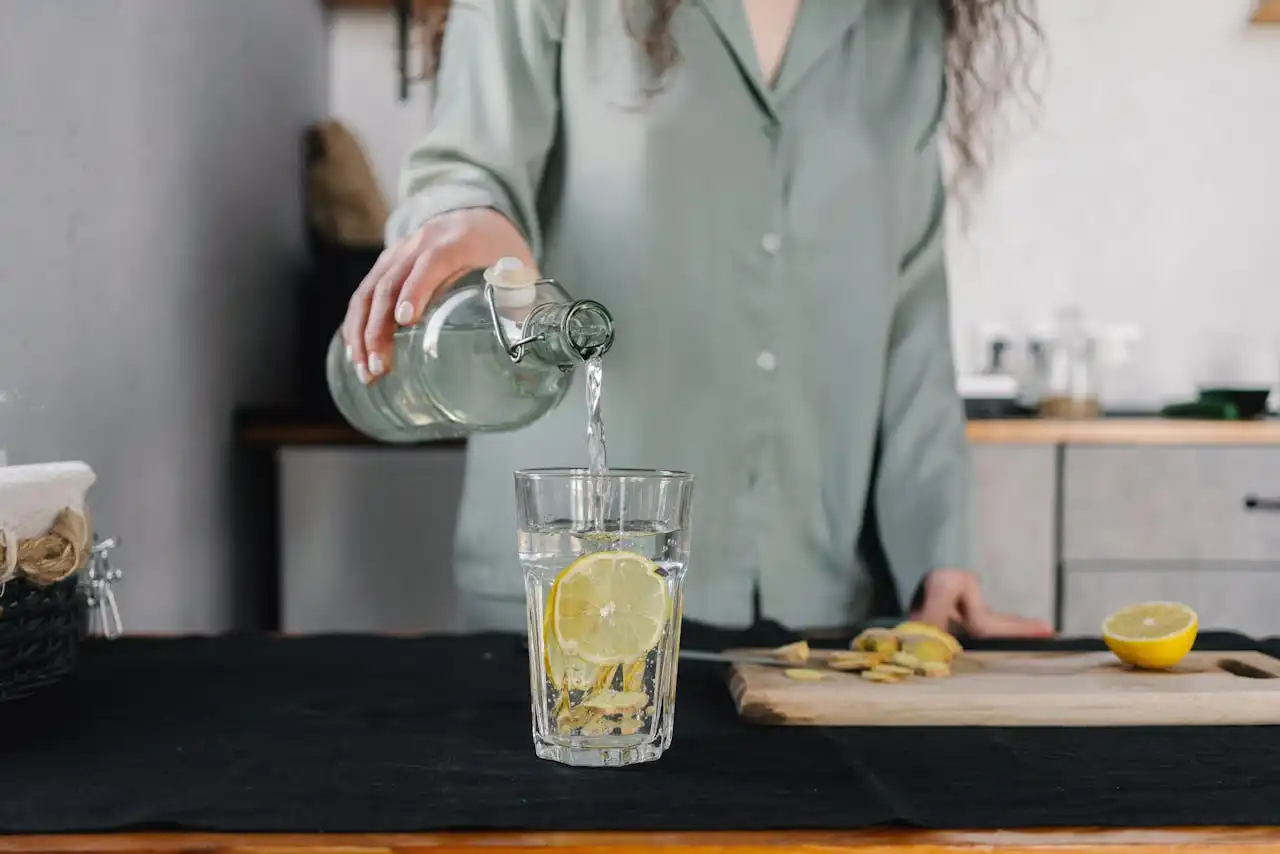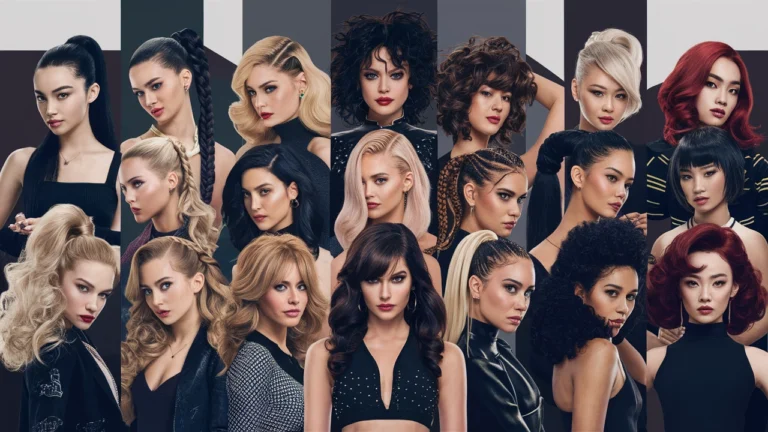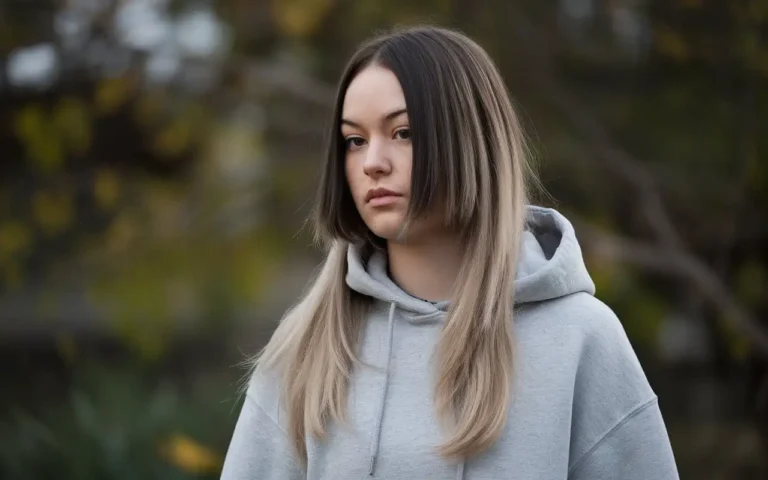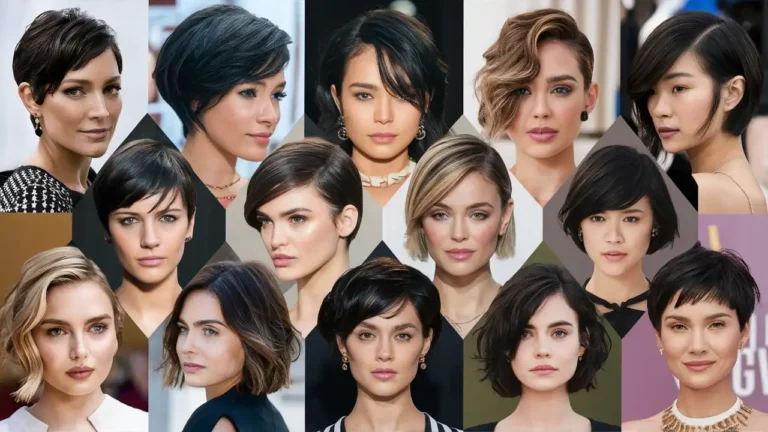Foods That Make Your Hair Healthier from the Inside Out
Your hair reflects what you eat more than you might realize. While expensive shampoos and treatments promise miracles, true hair health starts from within.
The right foods provide essential nutrients that strengthen, shine, and grow your hair naturally.
Protein Powerhouses: Building Blocks for Strong Hair
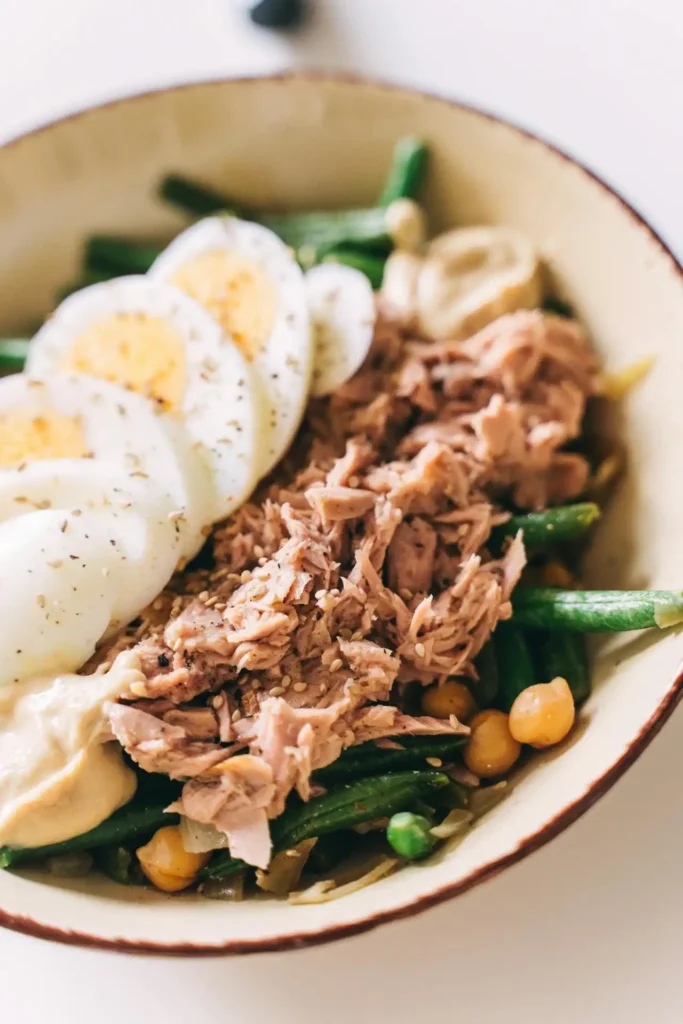
Eggs: The Complete Hair Food
You’ll find everything your hair needs in a simple egg. Eggs contain high-quality protein, biotin, and sulfur – three essential nutrients that directly impact hair strength and growth.
The protein in eggs provides the building blocks for keratin, which makes up 95% of your hair structure.
Start your day with scrambled eggs or add hard-boiled eggs to your salads. The biotin in egg yolks specifically helps prevent hair thinning and promotes healthy growth.
Many people notice stronger, more resilient hair within weeks of increasing their egg consumption.
Don’t worry about cholesterol concerns if you’re healthy. Consider trying different preparations to keep things interesting.
The benefits of eggs for hair health far outweigh any dietary concerns for most people. Your hair follicles will thank you for the steady supply of amino acids.
Poached eggs on avocado toast, veggie omelets, or egg salad sandwiches all deliver the same hair-boosting benefits while keeping your meals varied and enjoyable.
Fish: Omega-3 Rich Protein Sources
Fatty fish like salmon, mackerel, and sardines provide both high-quality protein and omega-3 fatty acids.
These nutrients work together to promote scalp health and add natural shine to your hair.
The protein strengthens hair shafts while omega-3s reduce inflammation that can impede hair growth.
You should aim for at least two servings of fatty fish per week for optimal hair benefits. Wild-caught salmon contains higher levels of omega-3s than farmed varieties, making it the superior choice for hair health.
The anti-inflammatory properties of omega-3s help create an optimal environment for hair growth.
Chronic inflammation can shrink hair follicles and slow down the growth cycle, so these healthy fats act as natural protectors for your scalp.
If you don’t enjoy fish, consider fish oil supplements, but whole food sources provide additional nutrients like selenium and vitamin D that also support hair health.
Iron-Rich Foods: Preventing Hair Loss
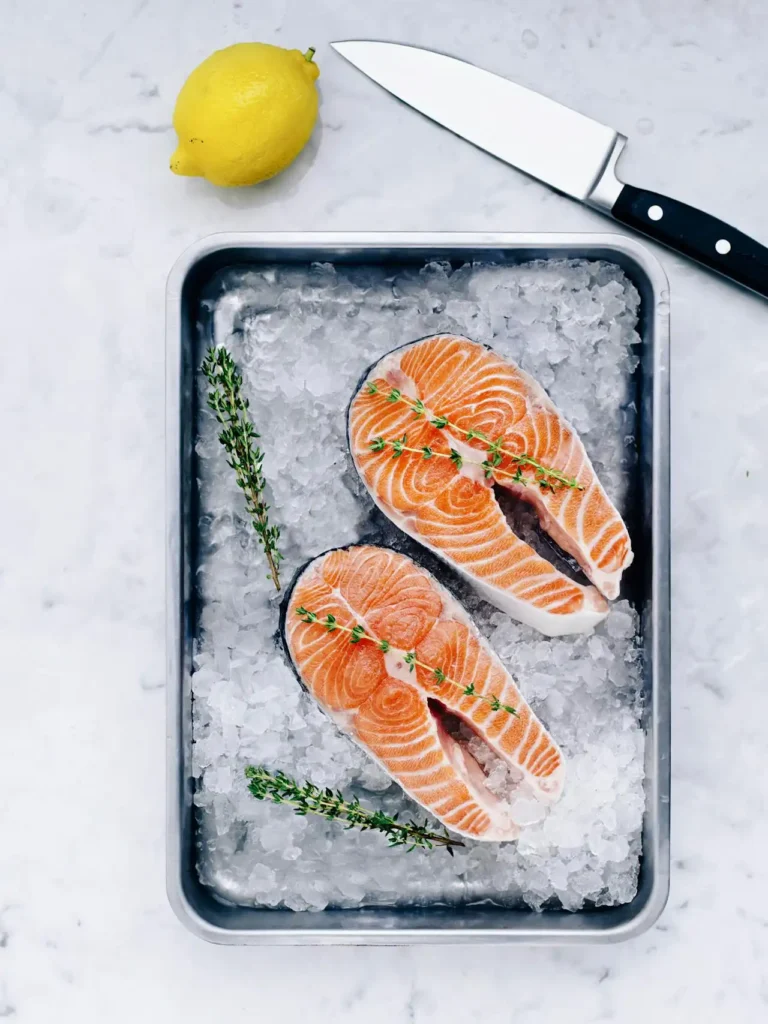
Leafy Greens: Nutrient-Dense Hair Helpers
Spinach, kale, and Swiss chard pack incredible amounts of iron, folate, and vitamins A and C.
Iron deficiency ranks as one of the most common causes of hair loss, especially in women.
These leafy greens help maintain healthy iron levels while providing other hair-supporting nutrients.
You can easily incorporate more greens into your diet through smoothies, salads, or sautéed side dishes.
The vitamin C in these vegetables actually helps your body absorb the iron more effectively, making them particularly valuable for hair health.
Dark leafy greens also contain sebum, a natural oil that acts as a built-in hair conditioner.
This natural conditioning effect helps keep your hair moisturized and less prone to breakage.
Try massaging fresh spinach or kale into your diet gradually if you’re not used to eating many vegetables.
Start with mild greens like baby spinach in smoothies, then work your way up to more robust varieties like kale and collard greens.
Red Meat and Lentils: Iron Absorption Champions
Lean red meat provides hemi iron, which your body absorbs more easily than plant-based iron sources.
If you eat meat, incorporating lean cuts a few times per week can significantly boost your iron levels and support healthy hair growth.
Lentils offer an excellent plant-based alternative for vegetarians and vegans. Consider having your iron levels tested if you suspect deficiency.
While plant-based iron requires more effort to absorb, combining lentils with vitamin C-rich foods like tomatoes or bell peppers enhances absorption significantly.
You’ll notice that people with iron deficiency often experience thinning hair, brittle strands, and slow growth.
Addressing iron levels through food rather than supplements allows for better absorption and reduces the risk of digestive upset.
Your doctor can recommend the right dietary approach or supplements if needed, but food sources generally provide the most sustainable long-term solution.
Healthy Fats: Moisture and Shine Providers
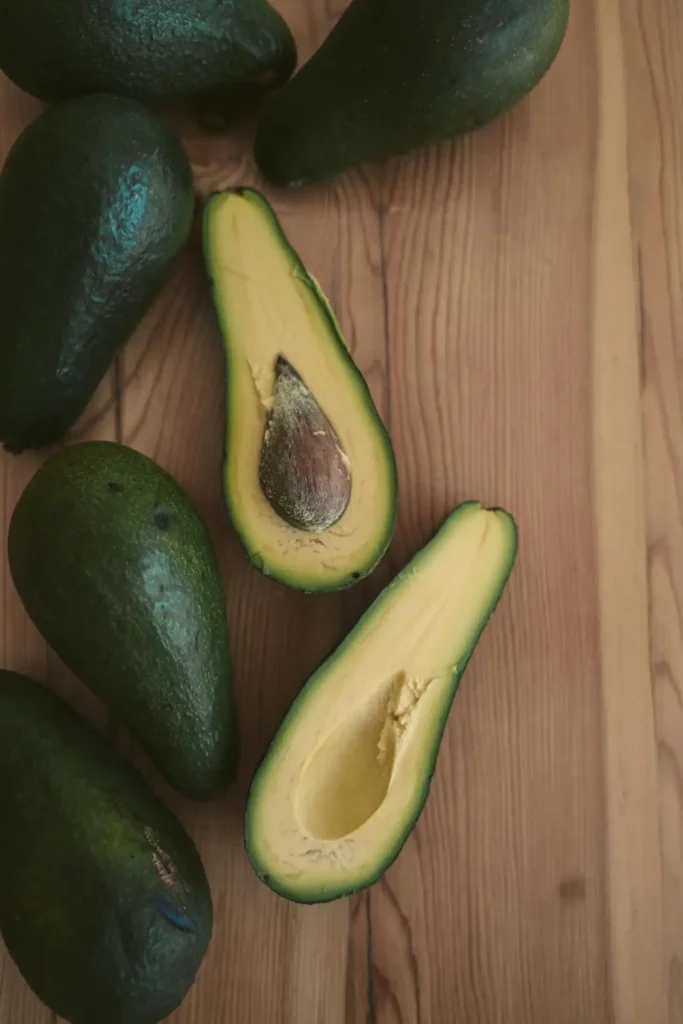
Avocados: Vitamin E Powerhouses
Avocados deliver healthy monounsaturated fats and vitamin E, both crucial for maintaining hair moisture and elasticity.
The vitamin E acts as an antioxidant, protecting your hair from environmental damage while promoting circulation to the scalp.
You can eat avocados in countless ways – on toast, in salads, blended into smoothies, or even as a base for chocolate pudding.
The versatility makes it easy to include this hair-healthy food in your daily routine.
The healthy fats in avocados help your body absorb fat-soluble vitamins like A, D, E, and K, which all play roles in hair health.
This makes avocados particularly valuable when eaten alongside other nutrient-rich foods.
Many people also use avocado as a hair mask, but eating it provides much more comprehensive benefits.
The nutrients work from the inside out to nourish hair follicles and support the entire growth cycle.
Nuts and Seeds: Concentrated Nutrition
Walnuts, almonds, and flaxseeds provide omega-3 fatty acids, protein, and vitamin E in convenient, portable packages.
These concentrated nutrition sources make perfect snacks for busy lifestyles while supporting hair health throughout the day.
Brazil nuts contain selenium, a mineral that supports scalp health and may help prevent dandruff.
Just two Brazil nuts daily provide your entire selenium requirement, making them an efficient addition to your hair-healthy diet.
Pumpkin seeds offer zinc, which plays a crucial role in hair tissue growth and repair.
Zinc deficiency can lead to hair loss, so including pumpkin seeds in your diet helps maintain optimal levels of this important mineral.
You can sprinkle mixed nuts and seeds on yogurt, salads, or oatmeal for an easy nutrition boost.
Keep portions moderate since nuts and seeds are calorie-dense, but don’t skip them entirely due to their concentrated benefits.
Vitamin C Rich Foods: Collagen Support
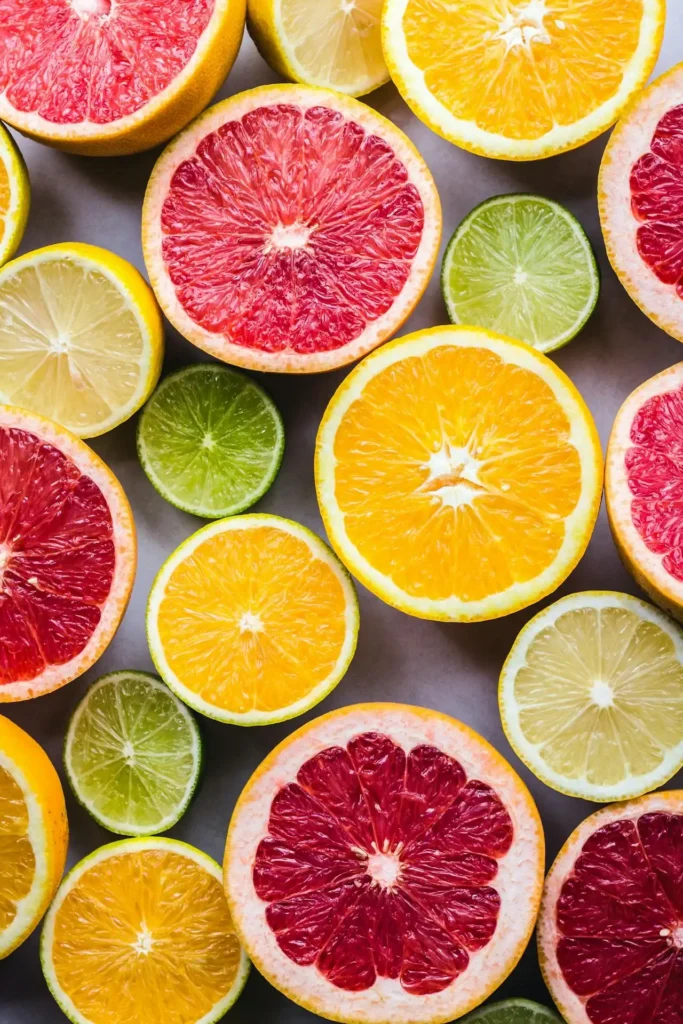
Citrus Fruits: Iron Absorption Enhancers
Oranges, grapefruits, and lemons provide vitamin C that helps your body absorb iron more effectively.
This vitamin also supports collagen production, which strengthens hair and may slow down aging-related hair changes.
You should pair vitamin C-rich foods with iron sources for maximum benefit. This protection helps maintain healthy hair growth cycles and may prevent premature graying.
A spinach salad with orange segments or lentil soup with a squeeze of lemon juice maximizes nutrient absorption for hair health.
Vitamin C also acts as an antioxidant, protecting hair follicles from damage caused by free radicals.
Fresh citrus fruits provide more benefits than juice, which often contains added sugars and lacks fiber.
Whole fruits also help you feel satisfied while providing steady nutrition throughout the day.
Berries: Antioxidant Superstars
Blueberries, strawberries, and raspberries pack vitamin C along with other antioxidants that protect hair follicles from oxidative stress.
These compounds help maintain healthy circulation to the scalp, ensuring that nutrients reach your hair roots effectively.
You can easily add berries to breakfast cereals, yogurt, smoothies, or enjoy them as healthy snacks.
Frozen berries work just as well as fresh ones and often cost less while lasting longer in your freezer.
The anthocyanins that give berries their deep colors also support circulation and may help prevent hair loss.
These natural compounds work synergistically with vitamin C to provide comprehensive hair protection.
Consider buying organic berries when possible, as they tend to have higher antioxidant levels and fewer pesticide residues.
However, conventional berries still provide significant benefits and are better than no berries at all.
B-Vitamin Rich Foods: Growth Supporters
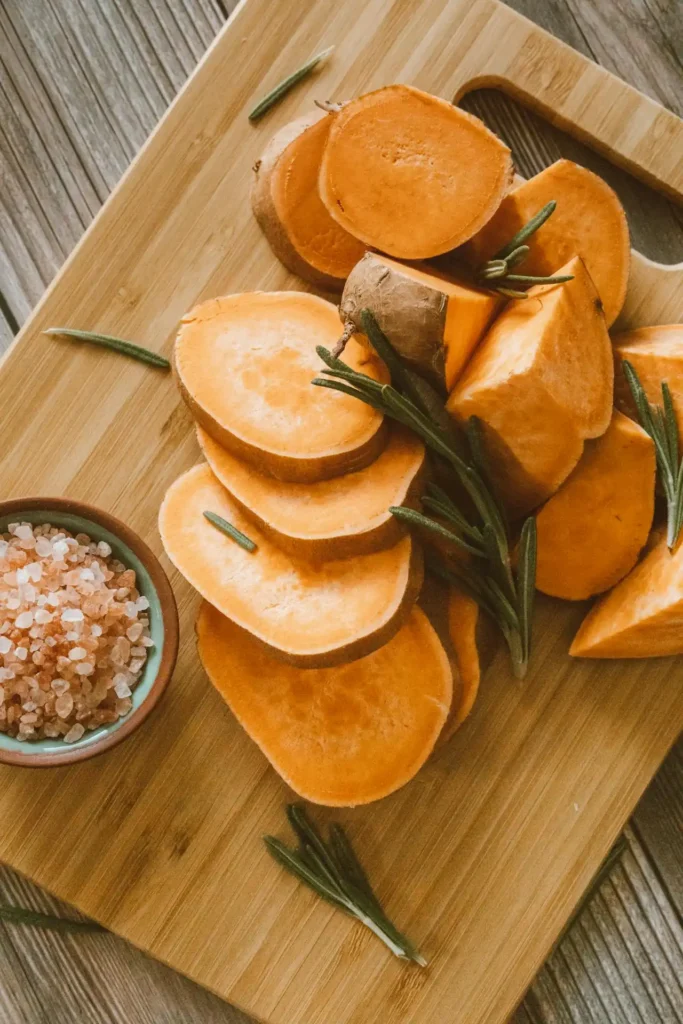
Sweet Potatoes: Beta-Carotene Sources
Sweet potatoes provide beta-carotene, which your body converts to vitamin A.
This vitamin helps produce sebum, the natural oil that keeps your scalp healthy and your hair moisturized. Vitamin A deficiency can lead to dry, brittle hair and scalp problems.
You can prepare sweet potatoes in numerous ways – baked, roasted, mashed, or even in smoothies.
Their natural sweetness makes them appealing to most people, and they pair well with both savory and sweet flavors.
The fiber in sweet potatoes also supports overall health by promoting good digestion and stable blood sugar levels.
Stable blood sugar helps maintain consistent energy for hair growth and prevents stress-related hair loss.
Choose orange-fleshed varieties over white ones for maximum beta-carotene content. The deeper the orange color, the higher the concentration of this hair-healthy nutrient.
Whole Grains: B-Vitamin Complex
Brown rice, quinoa, and oats provide B-vitamins including biotin, niacin, and folate. You should choose whole grains over refined versions whenever possible.
These vitamins support hair growth, help prevent hair loss, and maintain the overall health of your hair and scalp.
Whole grains retain their B-vitamin content, while processing removes many of these essential nutrients that support hair health.
B-vitamins work together synergistically, so eating a variety of whole grains ensures you get the complete complex your hair needs.
Each grain offers slightly different nutrient profiles, making variety important for optimal benefits. This makes it particularly valuable for vegetarians and vegans.
Quinoa stands out as a complete protein source among grains, providing all essential amino acids your hair needs for strength and growth.
Zinc and Selenium Sources: Scalp Health Maintainers
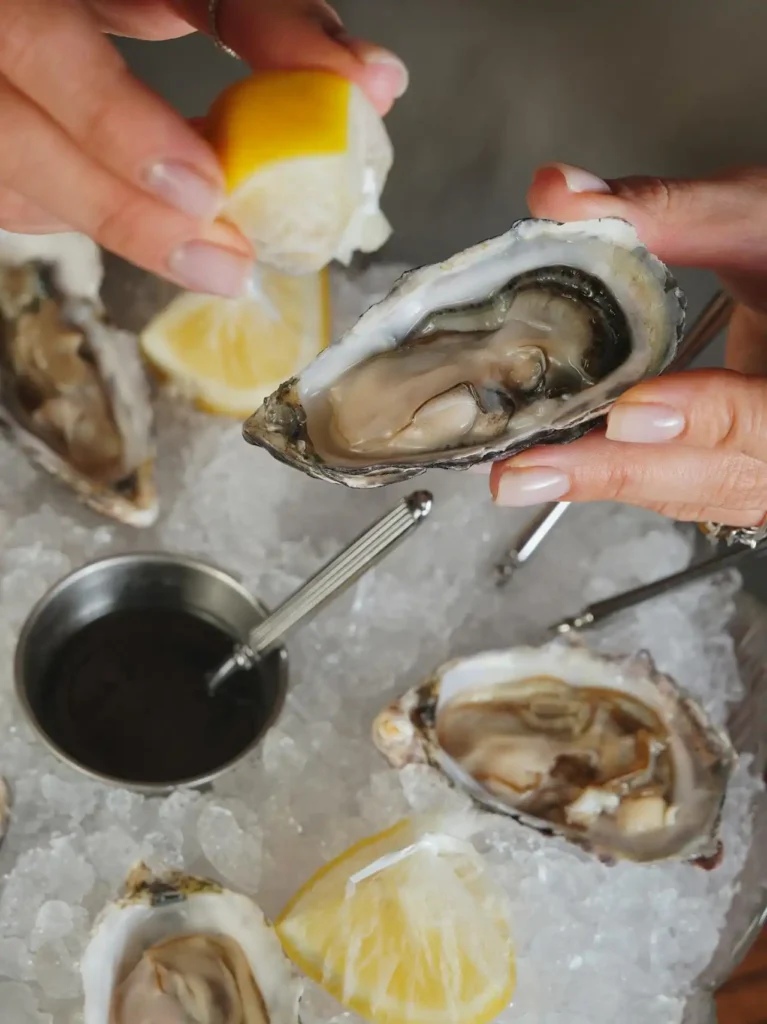
Oysters and Shellfish: Mineral Powerhouses
Oysters contain more zinc per serving than any other food, making them incredibly valuable for hair health.
Zinc plays crucial roles in hair tissue growth, repair, and oil gland function around hair follicles. You don’t need to eat oysters daily to get benefits.
Even occasional consumption can help boost your zinc levels significantly. If you enjoy seafood, oysters make an excellent addition to a hair-healthy diet.
Other shellfish like crab and lobster also provide zinc, though in smaller amounts than oysters. These foods also offer protein and omega-3 fatty acids that further support hair health.
If you don’t eat shellfish, pumpkin seeds, beef, and chickpeas provide alternative zinc sources, though you’ll need larger portions to match the zinc content of oysters.
Sunflower Seeds: Vitamin E Providers
Sunflower seeds offer vitamin E, selenium, and healthy fats that support scalp circulation and hair growth.
The vitamin E acts as an antioxidant, protecting hair follicles from damage while promoting healthy blood flow to the scalp.
You can sprinkle sunflower seeds on salads, mix them into trail mix, or eat them as a standalone snack. Their mild flavor works well in both sweet and savory applications.
The selenium in sunflower seeds supports thyroid function, which directly impacts hair growth and texture.
Thyroid imbalances often manifest as hair changes, making selenium an important nutrient for maintaining healthy hair.
Choose raw or dry-roasted sunflower seeds over heavily salted varieties to avoid excess sodium while maximizing nutritional benefits for your hair.
Hydrating Foods: Moisture From Within
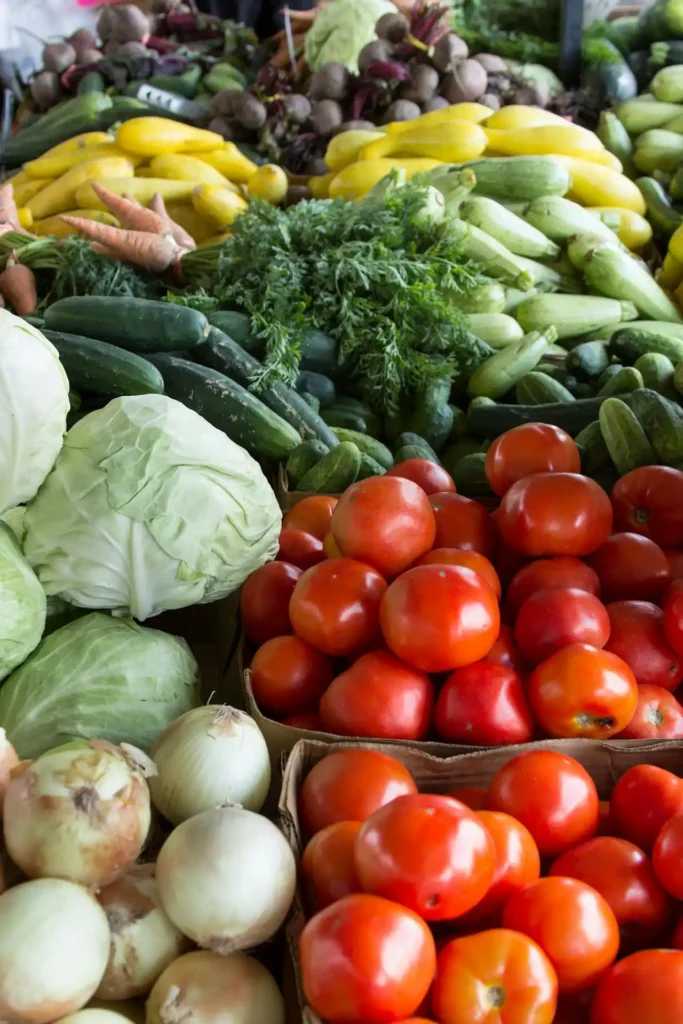
Water-Rich Vegetables: Internal Hydration
Cucumbers, celery, and bell peppers provide water content that helps maintain hair moisture from the inside out.
Proper hydration affects hair texture, elasticity, and overall health more than many people realize.
You should aim for adequate hydration through both direct water intake and water-rich foods.
These vegetables provide additional nutrients while contributing to your daily fluid needs.
Dehydrated hair becomes brittle, prone to breakage, and loses its natural shine. Including water-rich foods in your diet helps prevent these problems while supporting overall health.
These vegetables also provide vitamins and minerals that support hair health, making them doubly beneficial.
The combination of hydration and nutrients creates an ideal environment for healthy hair growth.
Foods to Limit for Better Hair Health
Sugar and Processed Foods: Hair Growth Inhibitors
Excessive sugar consumption can lead to inflammation and hormonal imbalances that negatively impact hair growth.
High-glycemic foods cause blood sugar spikes that may contribute to hair loss in sensitive individuals.
You don’t need to eliminate sugar completely, but reducing processed foods and refined sugars can improve hair health along with overall wellness.
Focus on natural sugars from fruits instead of added sugars in packaged foods. Processed foods often lack the nutrients your hair needs while providing empty calories.
Replacing these foods with nutrient-dense whole foods gives your hair the building blocks it needs for optimal health.
Consider this a gradual process rather than dramatic restriction.
Small changes in food choices accumulate over time to create significant improvements in hair health and appearance.
Conclusion
Nourishing your hair from within through nutrient-rich foods creates lasting improvements that no external treatment can match for true hair health.

